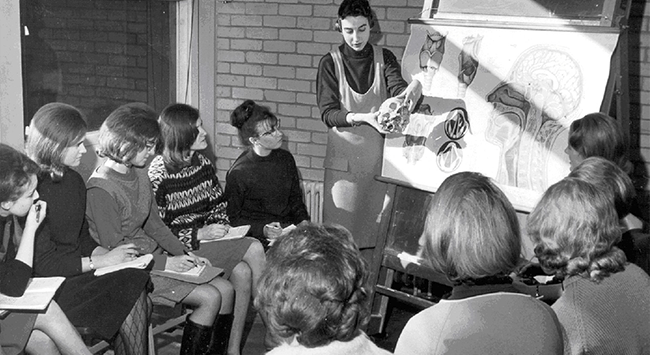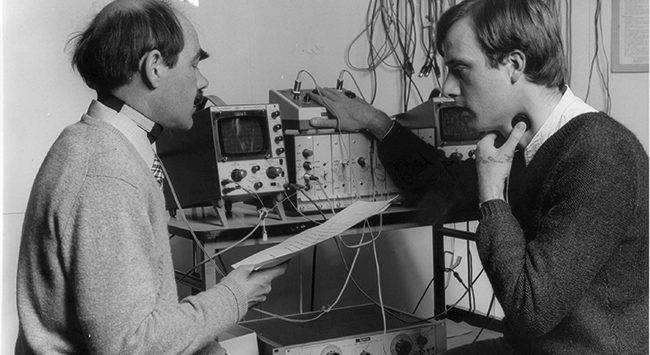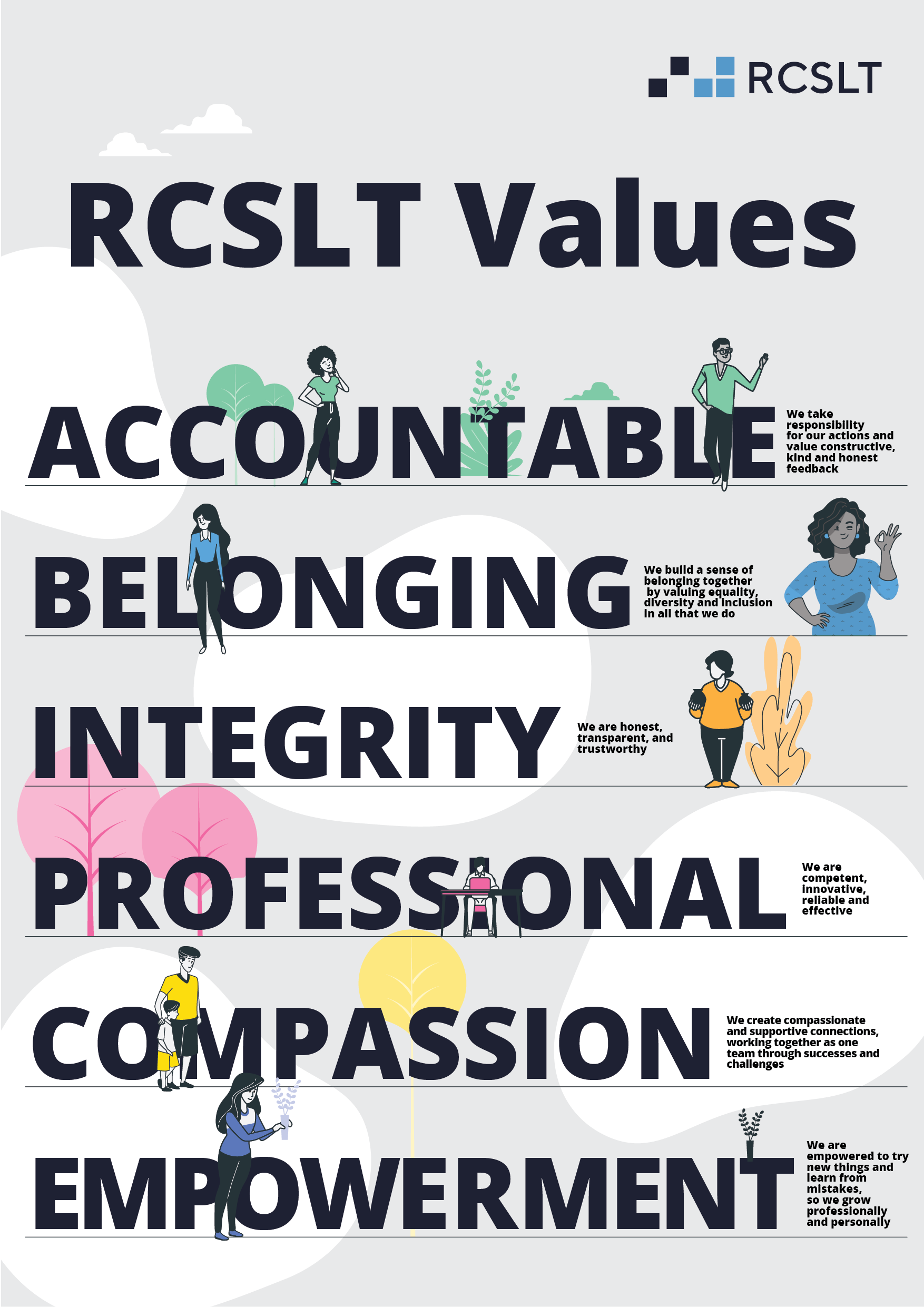
About us
Back to What we do
Hello, we’re the RCSLT
We’re the Royal College of Speech and Language Therapists (RCSLT), the professional body for speech and language therapists in the UK.
Our mission: To enable better lives for people with communication and swallowing needs.
How do we do it? By facilitating and promoting research, producing guidance, holding events and influencing government. We promote better education and training for speech and language therapists, and provide information to our members and the public about speech and language therapy.
Our vision: A society that is inclusive of all with communication and swallowing needs.
Our values: Accountable, belonging, integrity, professional, compassion and empowerment. View more about our values.
Diversity and inclusion: We are committed to equality, inclusion and creating better lives for all. To learn more about our journey to becoming an anti-racist profession, see:
Our history

In 1944, the Association of Speech Therapists and the British Society of Speech Therapists teamed up to create a brand-new professional body, the College of Speech Therapists (CST).
The CST aimed to promote the study of speech therapy in the UK and unite all members of the profession.
King George VI is known for having received speech and language therapy for his stammer. He was so impressed with the work of his speech and language therapist, Lionel Logue, that in 1948 he became the CST’s first Royal Patron. Her Majesty Queen Elizabeth, the Queen Mother, took up the role after his death, becoming Patron in 1959.
In the 1990s, when speech therapists added ‘language’ to their titles and the CST was awarded the right to add ‘royal’ to its title, we officially became the Royal College of Speech and Language Therapists (RCSLT).
In 2003, HRH The Countess of Wessex took over as the RCSLT’s Royal Patron, continuing the historic relationship between speech and language therapy and the royal family.
Read more about the history of the RCSLT and the profession in a series of articles by Jois Stansfield, emeritus professor at Manchester Metropolitan University.

Our values
Our values are at the centre of our work and guide all of the RCSLT’s actions.
- Accountable – we take responsibility for our actions and value constructive, kind and honest feedback.
- Belonging – we build a sense of belonging together by valuing equality, diversity and inclusion in all that we do.
- Integrity – we are honest, transparent, and trustworthy.
- Professional – we are competent, innovative, reliable and effective.
- Compassion – we create compassionate and supportive connections, working together as one team through successes and challenges.
- Empowerment – we are empowered to try new things and learn from mistakes, so we grow professionally and personally.

Our strategic vision
The RCSLT Strategic Vision: 2022-2027 is our roadmap for the next five years. It outlines our main aspirations and areas of strategic focus.
Our aspirations
- Inclusive communication for all
- A more diverse, inclusive and representative profession, with equitable access to culturally appropriate provision for service users
- Explicit recognition of health inequalities, social disadvantage and the profession’s role in working to counter these
- Championing the value and impact of speech and language therapy
- Co-production with service users, their carers and families
- Better funding and resources for the profession, with a focus on staff health and wellbeing
- Innovation and excellence in research and clinical practice, and a stronger evidence base, including for telehealth and digital inclusion
- Properly funded senior and specialist roles, clear career pathways, and strong multidisciplinary team working
- Being an outstanding organisation that empowers its members to lead
Our main areas of strategic focus
- Equality, diversity and inclusion
- Co-production with service user partners
- Funding and recovery following the pandemic
- Innovation and excellence in research and clinical practice
- Developing the speech and language therapy workforce
- Championing the value and impact of speech and language therapy
- Empowering members to lead the profession
- Organisational excellence
Download the Strategic Vision
We have also produced a communication accessible easy read version with the support of RCSLT members and service users.
This accessible format presents our vision in a way that is easy to understand. It defines key words and uses pictures to support the text.
You can download the easy read format in PDF or Word format.
It may be helpful to have support when reading this document.
A Fair, Inclusive, and Equitable Workplace
At the Royal College of Speech and Language Therapists (RCSLT), our vision is to build a profession where every voice is valued, every identity respected, and every practitioner and member are empowered to thrive. We are committed to fostering a diverse and inclusive workforce that reflects the communities we serve, with equity, diversity and belonging (EDB) at the heart of our culture. We strive to create safe, inclusive spaces – both within our workplace and across the profession – where individuals feel confident discussing inequality and have freedom to learn, reflect, and grow both personally and professionally. Find out more about our work on Equity Diversity and Belonging.
Our Workplace
At the RCSLT, we celebrate diversity, embrace inclusion, and empower our staff to reach their full potential. We are committed to creating a supportive environment that removes barriers and values differences, where diverse perspectives and ideas thrive. Every colleague’s wellbeing is our priority, and we ensure that all staff are treated with dignity and respect, free from bullying, harassment, or discrimination.
Work with Us
We welcome applications from all backgrounds and are committed to embedding fair and inclusive practices throughout our recruitment process. Regardless of race, gender, ethnicity, disability, sexual orientation, faith, or any protected characteristic, we want everyone to feel a true sense of belonging and be valued for their unique contributions and skills. This ensures we attract and hire the best candidates from diverse talent pools while providing a respectful and positive candidate experience.
Zero Tolerance Statement
RCSLT do not tolerate unlawful harassment, bullying, or discrimination in any form, from anyone – whether staff, candidates, visitors, or third parties. We take all allegations seriously, and act promptly, fairly, and respectfully to ensure our staff safety and wellbeing. Our staff undergo regular awareness training to uphold these standards, and we encourage anyone who may experience or witness harassment or bullying to report it immediately. We focus on supporting and protecting our staff, learning from each situation to continuously improve, and ensuring a fair and compassionate process for all.


